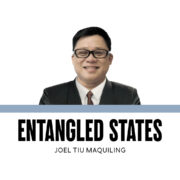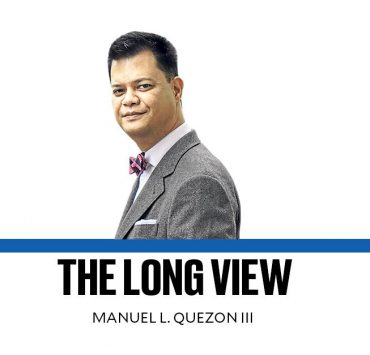Protecting GSIS pension fund

With some 2.74 million members dutifully paying their contributions on the promise that they will get that back in pension and other benefits, the state-run Government Service Insurance System (GSIS) cannot afford to play around with their hard-earned money.
Indeed, those entrusted with GSIS’ noble mission to provide social security and insurance to members and pensioners are expected to uphold the highest standards of corporate governance and employ sound fund management to ensure that the fund is adequate enough to cover for the needs of current and future government workers.
As to how “sound fund management” translates from a mission/vision statement into the pension fund’s balance sheet and bottom line is now the bone of bitter contention between GSIS management led by its president and general manager Jose Arnulfo “Wick” Veloso and former members of the GSIS board of trustees that has left policymakers and members worried about the pension fund.
Last week, current and former high-ranking GSIS officials called for the “immediate and irrevocable” resignation of Veloso, accusing him of committing a long list of sins, including “poor investment decisions” that resulted in as much as P8.8 billion in losses, adding that he had pursued risky investments “marked by a disturbing lack of transparency.”
Misleading metrics
“The primary mandate of the GSIS is to manage its funds with utmost prudence, diligence, and loyalty. Your current trajectory suggests a departure from this sacred mandate, prioritizing transactions that serve interests other than those of the members,” said the letter signed by officials led by Ma. Merceditas Gutierrez, chair of the legal oversight committee; Emmanuel de Leon Samson, chair of the risk oversight committee; Rita Riddle, chair of the audit committee; board member Evelina Escudero; and former board members Jocelyn de Guzman Cabreza and Alan Luga.
Veloso, who was reinstated last month to GSIS after a two-month preventive suspension ordered by the Ombudsman, countered, branding the pointed allegations against him as “baseless” and that GSIS’ performance “speaks for itself.” Said Veloso: “As of August 2025, GSIS’s total assets have climbed to P1.92 trillion, net income has reached P100.02 billion, and total income stands at P231.06 billion. These results clearly demonstrate that, despite market headwinds, GSIS remains financially strong, resilient, and highly profitable.”
The accusers doubled down on their attacks against Veloso in another sharply worded letter, saying that the “narrative of success is predicated on misleading metrics and structural inflows that are unrelated to active investment management.”
Bitter exchanges
The latest twist was that Gutierrez, Samson, and Riddle stepped down, on grounds that “a productive and tenable working relationship” with Veloso was “no longer achievable.”
President Marcos had already appointed new names to replace them but this does not guarantee that the internal wranglings with consequences that are being felt by the greater economic community, including the bond and equities markets, will be automatically resolved and neither should they be papered over.
Stripping the bitter exchanges from the substance of the arguments indeed reveals valid concerns on both sides that have to be resolved for the benefit of the members and the broader economy that the state pension fund likewise serves.
The Marcos administration, for example, can scrutinize more closely the veracity of detailed claims by the former GSIS officials that investment rules had been flouted as the “absence of transparency and shared accountability” must not be accepted. A review is necessary given the Ombudsman case involving a P1.45-billion investment made by the Veloso-led GSIS in Alternergy Holdings Corp. which the Commission on Audit flagged for exposing the members’ pensions to “high risk.”
Pillar of protection
Checks and balances are a pillar of protection of the people’s money, to precisely ensure that no unnecessary and dangerous investment risks will be taken to preserve its assets for the long term, thus any accusations or claims that these are being weakened should not be taken lightly.
That said, Veloso’s defense that management be given the flexibility to take advantage of market movements for maximum return on investment should also be given the same consideration. As fund managers, they are obligated to find ways to make the fund work and look for ways to yield a respectable return on investments to add to the coffers of the pension fund as contributions alone will not be able to pay for the members’ benefits.
Given these, a sober, disinterested review of how the GSIS is being managed should be in place; investment guardrails should be inspected and strengthened and most importantly, politics should be removed from the equation.
As when actions of board members and management are motivated solely by self-preservation and vested interests, it is the members, survivors, and pensioners of GSIS who will ultimately suffer.

















How Filipinos cope with energy insecurity